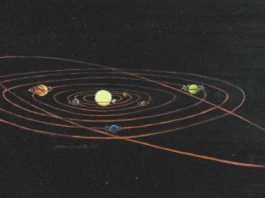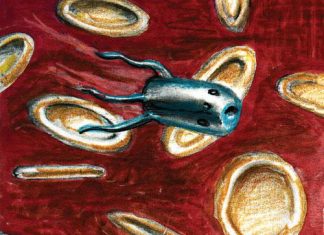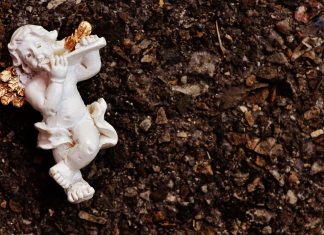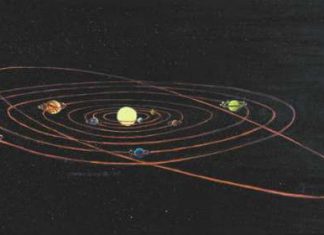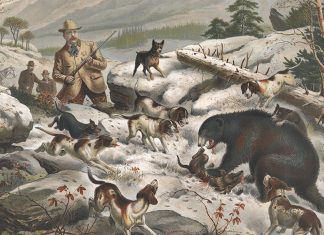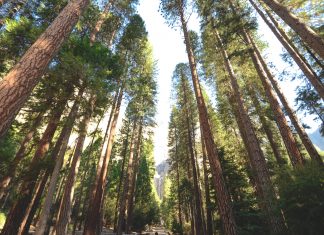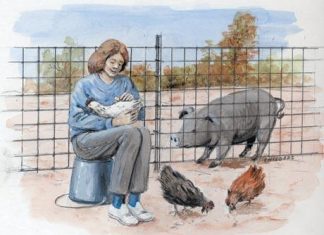Three more ways the world can end … and I’m not kidding
By John Silveira
Issue #155 • September/October, 2015
"What are you doing?" a voice asked.
I looked up and saw O.E. MacDougal, Dave's poker-playing friend from Southern California, and he's now my friend, too. Accompanying him was...
The world is ending! … Again?
By John Silveira
Issue #85 • January/February, 2004
People love to talk about scary stuff. Especially when it's end-of-the-world scary, such as the big asteroid recently in the news that was supposed to hit Earth and...
Testing Soil
By Tom Kovach
Issue #119 • September/October, 2009
Testing the soil content of a garden is very important and is quite easy to do. Soil tests are needed because some plants prefer slightly acidic soil, while...
Theories of the universe
By Dave Duffy
Issue #66 • November/December, 2000
In a relatively short span of time, mankind has travelled from profound ignorance of our planet and the world in which we live to a rather detailed picture...
Gee-Whiz: Presidents
By O.E. MacDougal
November/December 2016, Backwoods Home
I could spend all day coming up with interesting trivia about the Presidents and those who surround them — wives, children, assassins, etc. I could literally fill this magazine...
Gee-Whiz: From Paper to Canning
By John Silveira (aka O.E. MacDougal)
May/June 2017 Backwoods Home
The greatest inventions in history are the ones we now take for granted. Fire and the wheel-axle combination are among them. If we weren’t taught in...
Gee-Whiz: Coffee
By O.E. MacDougal
May/June 2018, Backwoods Home
Every second of every day about 26,000 cups of coffee are drunk around the world. That’s about 2¼ billion cups a day. But it’s still not the most widely...
The gee-whiz! page — Cats: Why they rule our world
By O. E. MacDougal
Issue #170 • March/April, 2018
House cats
A recent Gallup poll showed that cat ownership is pretty much evenly distributed between men and women, and that roughly 34 percent of all U.S. homes...
Subduction zone tsunami — What the residents of the Pacific Northwest have to fear
<!--
Subduction zone tsunami
-->
By John Silveira
Issue #94 • July/August, 2004
I was sitting in my cubicle poring over a map of the Oregon coastactually, just that part of the coast that is Gold Beach where Backwoods...
Gee-Whiz: Time
By O.E. MacDougal
July/August 2016, Backwoods Home
Time. We can’t see, feel, hear, smell, or taste it, but we can measure it and we break it up into smaller and smaller increments. We’ll probably never know...
Gee-Whiz: Alcohol
By O.E. MacDougal
Backwoods Home
Did early man first cultivate grains just to get drunk?
The brewing of beer is older than civilization and goes back at least 9,000, and perhaps more than 12,000, years. Evidence of...
Gee-Whiz: Trees
By O. E. Macdougal
September/October 2015, Backwoods Home
We’re told they include some of the oldest and largest living organisms on the planet. But do they? The fact is, only about one percent of a...
Avian Flu — How afraid of this
<!--
Avian Flu
How afraid of this chicken should you be?
By John Silveira
-->
Issue #97 • January/February, 2006
There's been a lot of talk in the mass media recently about Avian flu, also known as Bird flu and...
Zombie Apocalypse
By John Silveira
Issue #134 • March/April, 2012
"Can you survive a zombie apocalypse?" a familiar voice asked.
I turned in my seat to see O.E. MacDougal, Dave Duffy's poker-playing friend from Southern California, walking toward me....
The coming ice age
By John Silveira
Issue #139 • January/February, 2013
I'm putting my apocalyptic ice age novel, Danielle Kidnapped, on Amazon's Kindle and also producing a paperback version on Amazon's website. (See the ad on page 65.) The...
Science and truth. Are they related?
By John Silveira
Issue #46 • July/August, 1997
It was an argument about science. Dave and I were on one side, Dave's friends Tom and Bill, though curiously nonallied, were on the other. I say nonallied...





